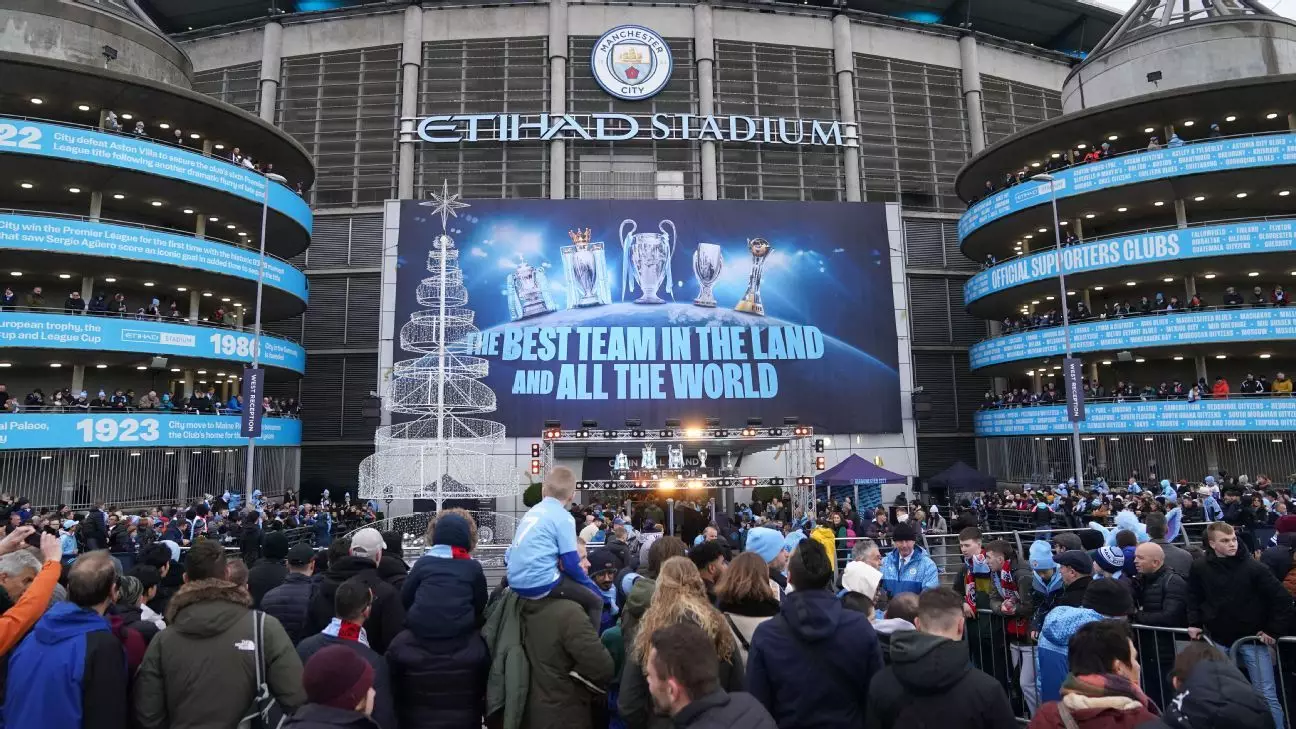The world of professional football is no stranger to controversy, but the upcoming independent hearing into Manchester City’s alleged violations of Premier League financial rules represents a pivotal moment in the sport’s financial governance. As the trial kicks off, it raises fundamental questions surrounding transparency, accountability, and the very future of one of football’s dominant clubs.
Manchester City’s ascent to footballing greatness has been meteoric, particularly following their acquisition by Sheikh Mansour’s Abu Dhabi United Group in 2008. With this influx of funds, they transformed from a mid-table team into a footballing powerhouse, clinching numerous titles, including eight Premier League championships and a Champions League trophy. However, this impressive resume is now cast under a shadow of skepticism due to potential financial misconduct spanning a decade—from 2009 to 2018.
The gravity of the situation is underscored by the staggering number of alleged breaches, which amounts to 115. Such sizable accusations can call into question not just City’s credence but also the integrity of the entire league. If proven guilty, the ramifications could be severe, ranging from hefty fines and points deductions to the unthinkable—the relegation of a team that has been lauded for its on-field talent and tactical brilliance.
The timing of this trial coincides with one of City’s most ambitious seasons, in pursuit of a fifth consecutive Premier League title. As evidence is reviewed and allegations unfold, the league could find itself in a precarious position, balancing competition integrity against maintaining interest in its most decorated clubs. The Premier League has enjoyed unyielding popularity and financial success, but scandals involving clubs of such stature can tarnish its reputation and diminish fan engagement.
Moreover, there is the looming specter of accountability. If the commission finds City guilty, it could set a precedent for how financial regulations are enforced across the league. Clubs will be forced to reckon with their fiscal strategies moving forward, as the concept of ‘financial fair play’ takes on new significance. Everton and Nottingham Forest have already faced consequences for non-compliance, signaling that the league is serious about financial integrity.
Manchester City has staunchly denied any wrongdoing, and manager Pep Guardiola has emphasized the presumption of innocence in light of these allegations. Guardiola’s comments highlight the emotional toll this trial may take on players and coaching staff, who find themselves in the spotlight for actions that extend beyond their control. Such scenarios create an aura of uncertainty, where speculation often overshadows sporting performance, leading to distractions that can impact day-to-day activities within the club.
The hearing, characterized as the “sports trial of the century,” escalates the intensity surrounding City’s future. Observers will be keenly watching as the appointed three-person commission sifts through the evidence over the anticipated ten-week hearing period. The decision, likely to be delivered before the end of the season, will not just have implications for City, but for every club navigating the intricacies of football finance.
Beyond Manchester City, this case may ripple through footballing structures worldwide. Should the trial reveal systemic issues within financial monitoring processes, it may prompt governing bodies to evaluate their regulations and enforcement mechanisms. The overall financial landscape of football could be influenced, leading to stricter compliance requirements, more rigorous audits, and potentially reshaping how clubs approach sponsorship deals and accounting practices.
As Manchester City stands on the precipice of a potentially transformative trial, football fans are left to contemplate significant questions about the sport’s ethical frameworks, transparency, and the ramifications of financial missteps. What remains to be seen is not only the outcome of this foundational trial but also how it will shape the future narrative of the sport moving forward. The stakes are high, for City and for the entire football community, as they navigate the murky waters between success and accountability.

